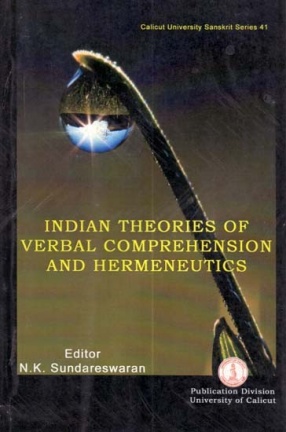
Publication Division, University of Calicut

26 books
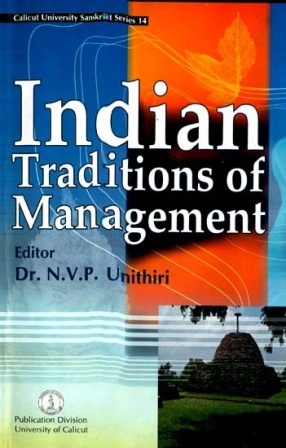
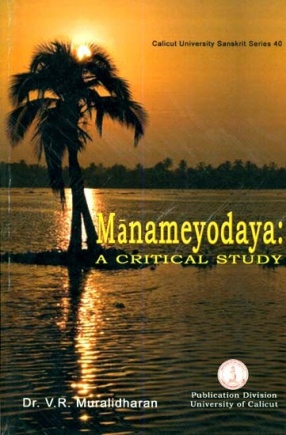
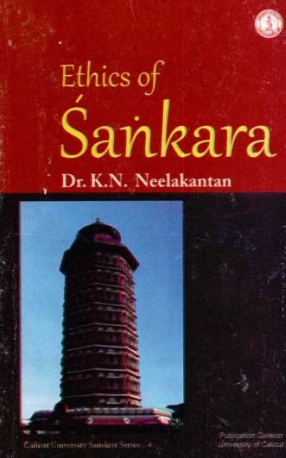
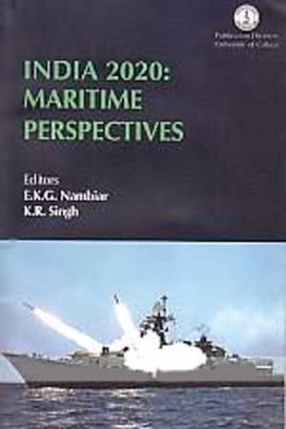
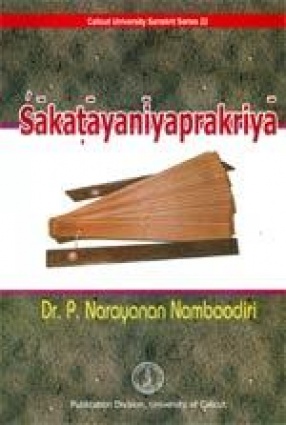
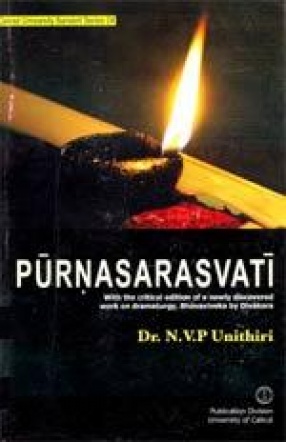
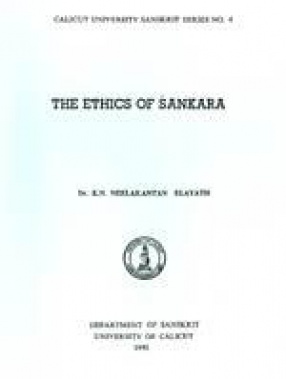
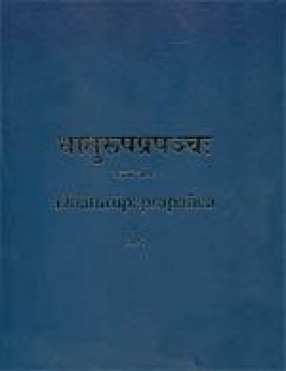
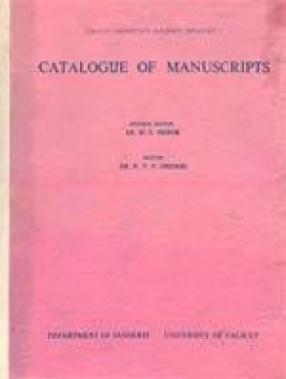
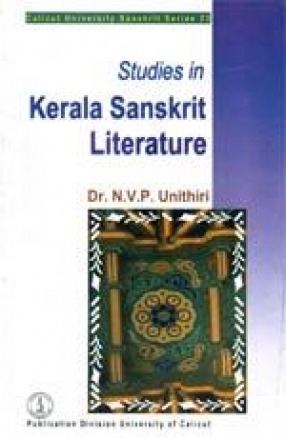
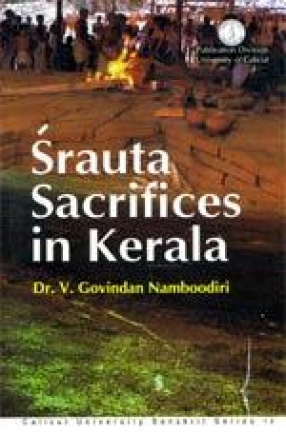
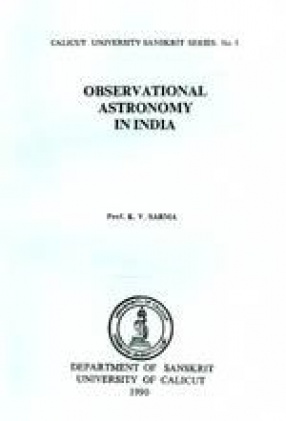
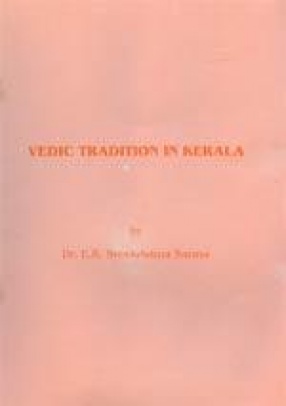
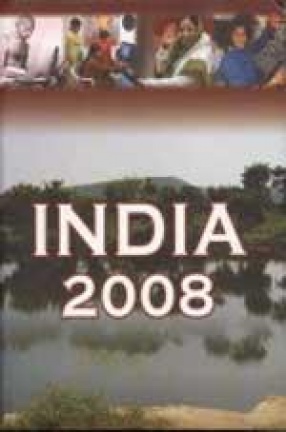
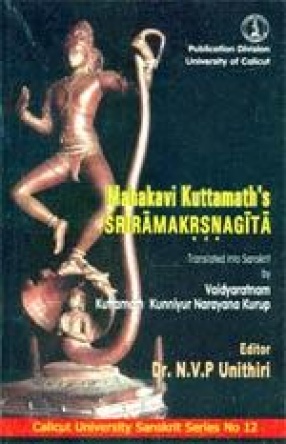
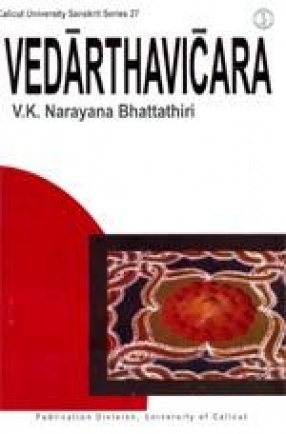

The present volume, Indian theories of verbal comprehension and hermeneutics, contains 21 articles discussing different aspect of Indian theories of verbal comprehension and hermeneutics. Hermeneutics, as is well known, is the art and science of interpretation. India has a rich tradition of hermeneutics. Verbal comprehension which naturally forms a part of hermeneutics, was a hot subject of discussion for not only philosophers but also for poeticians. It is ...

India is an advantageous position in the changing panorama of management, from one of pure economic culture to one of holistic approach, because of our religious and cultural heritage. The acquisition of wealth (Artha), developing a sadhanic personality (yoga), being committed to the truth and the right (Dharma), and believing in the almighty God as superior to man (Brahman) are all factors rooted in our tradition. Based on these, we can develop an appropriate ...

Mimamsa as a separate school of Indian philosophy deals with the ritualistic part of the Vedic literature, the earliest extant work of the school being the Sutras of Jaimini (200 BC). Though earlier writers like Sabara refer to the subject matter of the system by words like Vicara, Nyaya etc. meaning investigating into the real import of the Vedic sentences, by the time of Kumarila Bhatta (600-720 AD) the word Mimamsa became an established name of the school. ...

The aim of this work is to enlarge the scope of our study on Advaitavedanta and make it more significant from the point of ethics. It has been the fashion with some critics to treat Advaita ethics with suspicion and complain that in Advaita there is no logical place for ethics. In this book the author reviews all the fundamental concepts of Sankara with a view to explicate their ethical implications. The work presents a full account of Sankara’s treatment ...

Papers presented at a national seminar held on 5th September 2005.
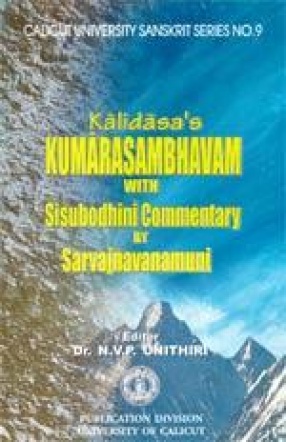

Sakatayaniyaprakriya by Dr. P. Narayanan Namboodiri is an excellent monograph in Sanskrit on the not-so-well known school of grammar founded by Sakatayana. This book is a revised form of Dr. Namboodiri's Doctoral Dissertation. It is divided into four chapters. Each argument put forward has been well established by the author with sufficient pieces of evidence. On the whole, this monograph will be an asset to the wealth of studies in ...
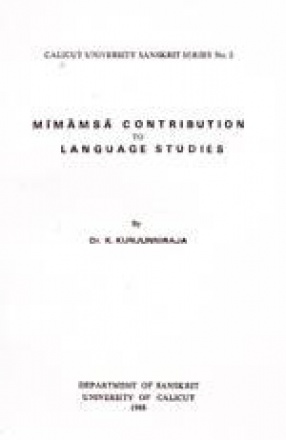
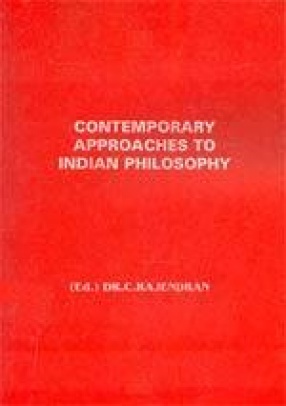
There is no dearth of books written on Indian Philosophy down the years and yet another addition to this field may call forth some explanation. To put it in a nutshell, it is the sheer magnitude of the problems discussed in Indian Philosophy as well as the ever-widening perceptions of it in the scholarly world which prompted us to organize an eight-day seminar on Contemporary Approaches to Indian Philosophy and to make the proceedings available to the ...

Purnasarasvati has a distinguished place in the galaxy of Kerala authors who have made their mark in the arena of Sanskrit Literature. Prof. N.V.P. Unithiri who did his doctoral thesis on Purnasarasvati has been engaged with his research work on various aspects of the great poet critic for more than the last three decades. During this period he has shown the true spirit of a researcher to correct himself. When one of his students finds a more ...

The present work substantially represents the thesis submitted by the present author for the Ph.D. degree of the University of Kerala in 1973. The aim of this work is to enlarge the scope of our study on Advaita Vedanta and make it more significant from the point of view of ethics. It has been the fashion with some critics to treat Sankara's ethics with suspicion and complain that, in Advaita, there is not logical place for ethics. Sanskrit ...

An inflectional language like Sanskrit inevitably presupposes a familiarity on the part of the user in the fully inflected forms in declensions and conjugations. Declensions are indeed manageable with a little patience and perserverance; but conjugational forms with ten lakaras in three numbers and three persons are a tall order. It is very difficult even for a scholar to ensure that the verbal form used by him is the correct one, given the vagaries ...

The Department of Sanskrit came to existence in this University in October 1977. Since then the Department is engaged in collecting palm leaf manuscripts in Sanskrit from several ancient families in different parts of Kerala and has been successful in the attempt to a great extent. There is now a collection of nearly one thousand five hundred manuscripts in the Department.

Dr. N.V.P. Unithiri is one of the few scholars who have been engaged in the deep study of various facets of Kerala Sanskrit literature for the past three decades. In fact, his efforts can be regarded as conplementary to the work of the pioneers in that he focuses his attention on many fresh areas left untreated or inadequately treated. The present work, which is a collection of eighteen research papers, deals with many fascinating aspects of the ...

Dr. Frits Staal, who is an authority of Kerala Vedic ritualistic tradition has written in the introduction of his monumental work, Agni. "If nothing, else, the present publication will show that a great deal of Vedic field work remains to be done before it is too late. At this point in history, each time one of the older ritualists dies, a portion of three thousand years old tradition irretrievably lost" . as a matter of fact, the same has ...

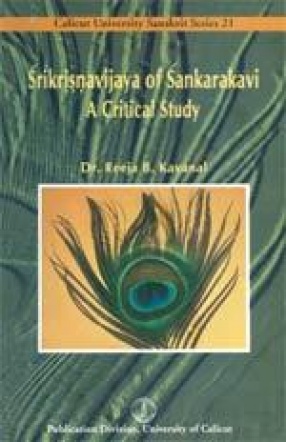
It is doubtful whether the rich and varied contributions made by Keralite authors to various branches of Sanskrit literature have received the attention they merit. Sankarakavi, the author of mellifluous Mahakavya, Srikrishnavijaya, is another outstanding poet belonging to this class of writers. This research work of Dr. Reeja B. Kavanal attempts to analyse the mahakavya Sriksnavijaya of Sankara Kavi in a critical perspective.

It is with mixed feelings that we are publishing the Seventh Prof. M.S. Menon Endowment Lectures entitled "The Vedic Tradition of Kerala' by late Dr. E.R. Sreekrishna Sarma. While the publication of this important work, though small, gives us great pleasure and satisfaction, the thought that Dr. Sarma himself is not with us to see it in print saddens us greatly. We dedicate this work to his memory.
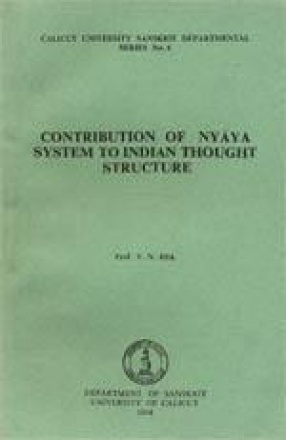
In this small but scholarly treatise Contribution of Nyaya System to Indian Thought Structure, Prof. V.N. Jha deals with all the essential topics connected with Nyaya Philosophy and logic. In the first chapter he prepares the background tracing the origin and growth of Nyaya system. The next chapter is devoted to deal with the contribution of Buddhist logicians. In the third chapter he presents a lucid exposition of pramanas in ancient Indian Philosophy ...

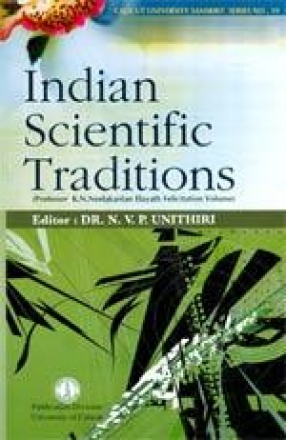
Sanskrit studies are generally confined only to Vedas, Itihasas, Puranas, Kavyas, Natakas, Alankarasastra, Vyakarana, Darsanas and the like. It is not well known that Sanskrit has also a vast literature on scientific and technological subjects like astronomy and mathematics, architecture and engineering, medicine, chemistry and botany, music and dance, law and politics. Of course, studies of medicine (Ayurveda) and astronomy and mathematics ...
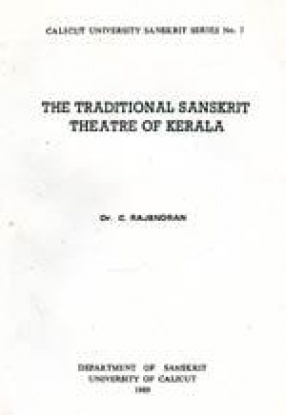
This monograph incorporates the results of the research work undertaken by the present author under the U.G.C. Scheme entitled 'The staging of Sanskrit Drama-A study with special reference to Kutiyattam' (1982-84). It attempts to investigate the basic features of Kutiyattam, the medieval Sanskrit theatre of Kerala in the light of Natyasastra, the authentic work on Sanskrit dramaturgy which represents the conventions followed in ancient India in the ...


The late V.K. Narayana Bhattathiri was a profound scholar on Vedic lore in all its remifications. He has traditional anchoring in Vedic studies, which he tried to supplement with his ever-deep explorations of the meaning of the Vedas, grossly neglected in orthodox pedagogical methods. In one sense the whole thought and work of Bhattathiri was a hermeneutical endeavour. Broad-minded and humance in his approach, he honestly believed that the Vedas ...
